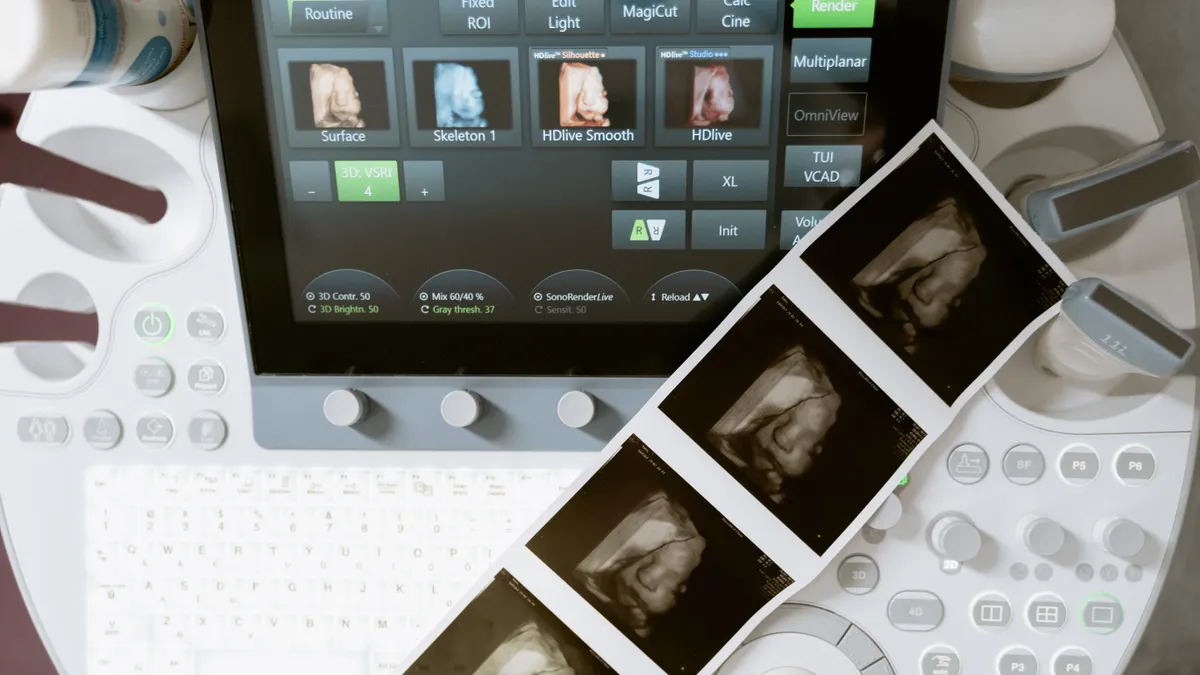Dive Brief:
- Researchers have published clinical trial data on the use of ultrasound to open the blood-brain barrier (BBB) and reduce inflammation, demonstrating new applications for the technology.
- In one study, patients with brain tumors received an ultrasound device implant. Every three weeks, the patients underwent chemotherapy while the device emitted ultrasound to briefly open the BBB and allow the drug to enter the brain.
- The other study, which was performed in collaboration with GE Research, saw scientists use focused ultrasound to stimulate the spleen and activate an anti-inflammatory response.
Dive Insight:
Ultrasound is primarily used for imaging, but the fact that the technology causes the production of mechanical pressure waves in tissues has led researchers to investigate a range of other applications based on how it affects the body. Two avenues of research passed milestones in recent weeks.
Writing in The Lancet Oncology, scientists at Northwestern Medicine reported the results of a phase 1 clinical trial that used a low-intensity pulsed ultrasound device to open the BBB in people with recurrent glioblastoma, a type of brain tumor. The BBB typically stops drugs from entering the brain and thereby prevents the effective treatment of tumors that affect the organ.
Eight of the 17 participants experienced severe neutropenia, low levels of a type of white blood cell. In addition, two dose-limiting toxicities were seen in the first two rounds of treatment. With treatment resuming at lower doses, the scientists considered the approach safe enough to move into a larger clinical trial. The study will show whether the increased brain drug concentrations seen in phase 1 improve survival.
Researchers at the Feinstein Institutes for Medical Research published details of the other clinical trial in the journal Brain Stimulation. That study evaluated the effect of using a modified diagnostic ultrasound imaging system to deliver pulses to the spleens of healthy human subjects. The trial built on preclinical data that shows stimulating the spleen activates an anti-inflammatory neural pathway.
In humans, stimulation of the spleen lowered the production of tumor necrosis factor (TNF), an inflammatory protein, for more than two hours. While TNF production returned to normal within 24 hours, the research suggests that it may be possible to treat a range of inflammatory conditions including arthritis using ultrasound, rather than with the pharmaceuticals that are used today.










